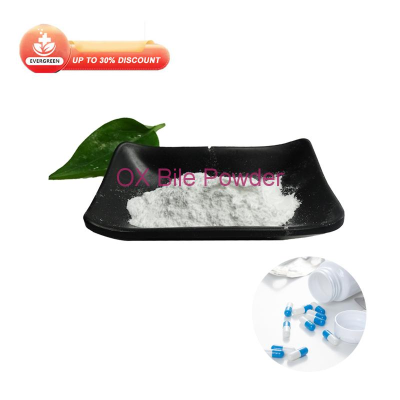-
Categories
-
Pharmaceutical Intermediates
-
Active Pharmaceutical Ingredients
-
Food Additives
- Industrial Coatings
- Agrochemicals
- Dyes and Pigments
- Surfactant
- Flavors and Fragrances
- Chemical Reagents
- Catalyst and Auxiliary
- Natural Products
- Inorganic Chemistry
-
Organic Chemistry
-
Biochemical Engineering
- Analytical Chemistry
- Cosmetic Ingredient
-
Pharmaceutical Intermediates
Promotion
ECHEMI Mall
Wholesale
Weekly Price
Exhibition
News
-
Trade Service
The DHA content of freshwater fish is not necessarily lower than that of sea fish. Deep-sea fish don't necessarily have as much DHA as people think.
today, even marine fish are still polluted by the environment, sometimes even more seriously.
, whether from a nutritional point of view, or from a safety point of view, sea fish are not necessarily better than river fish, sea fish and river fish are good fish, not much difference.
fish is a healthy food, because of its delicious taste, popular. Before everyone eats fish basically eat river fish, now all kinds of sea fish are also brought to people's table.
many people think that sea fish are good nutrition, DHA (a polyunsaturated bond fatty acid beneficial to the human body) content is high, not only healthy but also free of heavy metals and other pollution. Is that true?
more DHA in sea fish, healthier?
sea fish belong to saltwater fish, while river fish belong to freshwater fish. One reason many people think deep-sea fish are healthier is that they have higher DHA levels. In fact, the DHA content of freshwater fish is not necessarily lower than that of sea fish. Studies have found that the content of n-3 polyunsaturated fatty acids in freshwater fish is no lower than that of sea fish .
there are also studies comparing salmon, with fish, jaundic, mackerel and mackerel 5 kinds of commercially available sea fish and mackerel, mackerel, Chinese mackerel, mackerel, mackerel, mackerel, salmon, Wuchang fish, carp and The 9 kinds of commercially available freshwater fish, mainly in fish and visceral fat EPA and DHA content analysis and comparison, found that freshwater fish EPA and DHA content is not lower than deep-sea fish, the highest content of even freshwater fish mackerel.
these results, deep-sea fish do not necessarily have as much DHA as people think.
sea fish safer?
sea fish grow in the ocean, we will think of the blue sea and blue sky, and when it comes to river fish, we think of sewage. Therefore, many people will think that sea fish are safer. Isn't that right? In fact, this is just a beautiful imagination. In today's globalized world, even marine fish can still be polluted by the environment, sometimes even more seriously.
parasites, heavy metals (mercury, cadmium, arsenic, etc.) and persistent organic pollutants (PCBs, PBBs) are the most common pollutants in fish. So what are these substances like in sea fish?
many people think the sea is salty and there will be no parasites. In fact, like other animals, almost every sea fish can be infected by parasites.
There are many known species of marine fish parasites, and fish diseases caused by these parasites, such as irritating cryptosomal disease, viscose worm disease, plateworm disease, etc., are often faced by sea fish. Take the infamous iso-tip nematodes, for example, a globally distributed parasite that can be found in all the world's seas, salmon, salmon, tuna, sea bass, cod, with fish, eels, grouper, mackerel, real mackerel and so on.
heavy metals as for heavy metals, studies have tested elements such as arsenic, a heavy metal in 10 species of fish commonly consumed in several markets, and found that the heavy metal content of sea fish is higher than that of freshwater fish.
University study also found that methylmercury in the deep sea, when combined with the molecules of salt (sodium chloride), is more difficult to break down in the environment and more harmful to health. In fact, national health agencies are warning people not to eat several high-mercury fish, including sharks, flagfish, mackerel, squareheads, which are sea fish.
POPs
and POPs, some studies have assessed the pollution levels of PBDEs in commercially available fish in Shenzhen, and found that the median PBDEs content of freshwater and sea fish was 328.2, 1108.8 pg/g (in wet weights) and that sea fish were also higher than freshwater fish. The concentration and bio-effectiveness assessment of PCBs in animal food sold in Shanghai found that the concentration level of PCBs in seawater fish was higher than that of freshwater fish.
need to be reminded that although the fish in the market detected pollutants, but usually not exceed the standard, considering the daily consumption, generally will not be harmful to people's health, we do not have to worry too much.
sea fish river fish, are good fish
in fact, whether freshwater fish or sea fish, their nutritional composition is not much different. Sea fish and river fish are high-quality protein, containing unsaturated fatty acids and vitamin D, selenium and other nutrients, are healthy food. In terms of safety, parasites, heavy metals and other issues are common enemies of sea and river fish.
(Koxin Food and Nutrition Information Exchange)







